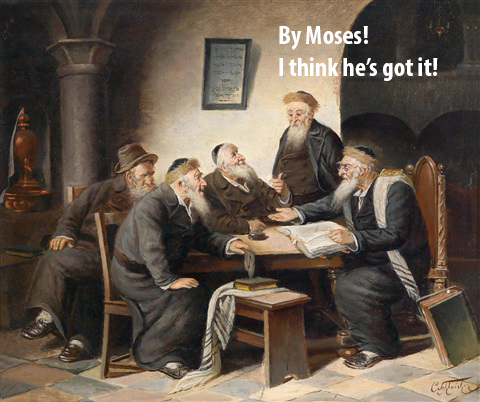BS”D
Beitza 38b
1- We continued the complicated Sugya about the nature of Techumin.

The crux of the discussion: Is תחומין defined as a monetary issue or does it fall into the category of issur?
The answer to this question would also clarify as to why when one takes water or salt from her friend on Yom Tov and uses it to create a dough, the Mishna says that this dough or bread can be moved only up to the Techum of both; the flour and water, owners.
The question is why the small amount of water is not בטל to the flour?
Now, if Techumin is a pure monetary issue (meaning that it is predicated on the ownership of the item at the onset of Yom Tov), then the Mishnah is understood: The dough is owned by two people: The provide of the flour guy (majority) and the water (minority) is owned by another person. And since this is a money case (non issur) the even the minute water amount is still ‘money’ and it cannot be בטל inside the dough. (Pardon the pun).
On the other hand if Techumin is only an issur issue, then we need to understand why the there is no ביטול in such a case. Why should the minute amount and value of the water not be בטל , and thus the dough should have only one ‘owner’?
2- The difficulty in understanding the dialogue of Reb Abba, the Israeli אמוראים mocking of his response, the explanation…
3- We mentioned the great Rabbi of Salonika, Reb Shmuel Di Medina. See here and here. Also known as the מהרשד”ם -Maharashda”m.

From the library of the son of the Ksav Sofer in Pressburg
His response (YD # 117) was to a question concerning a group of Jews in the ‘shmatte’ industry. To acquire wool to weave into material they would go out to the farms and purchase bales of wool from non-Jewish shepherds. To avoid increasing the price by bidding against each other they agreed to a maximum price they would offer to the farmers.

Occasionally, one fellow would make a מחאה that he is unhappy with this arrangement as he would be willing to pay above the agreed price.

The question was, if his opinion, being the minority one among this group of shmatte dealers, is בטל!!
See here where he writes that although we generally follow the rule of אחרי רבים להטות, meaning that we always follow the majority, and an item is בטל ברוב, in monetary issue we do not follow this rule. [There is a lot more in this תשובה].
4- The Gemore says that one אמורא told his friend משה! and then states his opinion. Rashi says it is like saying “I swear by משה רבינו that I am right”.
We mentioned Rambam that writes that it is the custom among Jews to swear in such a manner.
Sefer Hamitzvot, Positive 7
Therefore, one may not swear in the name of any other creation, such as angels or stars. An exception is where the subject [i.e. G‑d] is obviously omitted, such as one who swears in “the truth of the sun,” but means “the true G‑d of [i.e. Who created] the sun.” It is in this manner that our nation swears in the name of Moshe — in order to gain honor through [mentioning] his name. It is as if the person uttered the oath, “in the G‑d of Moshe,” or “in the One Who sent Moshe.













